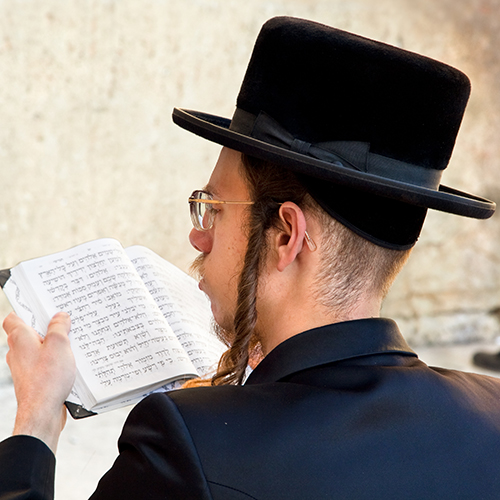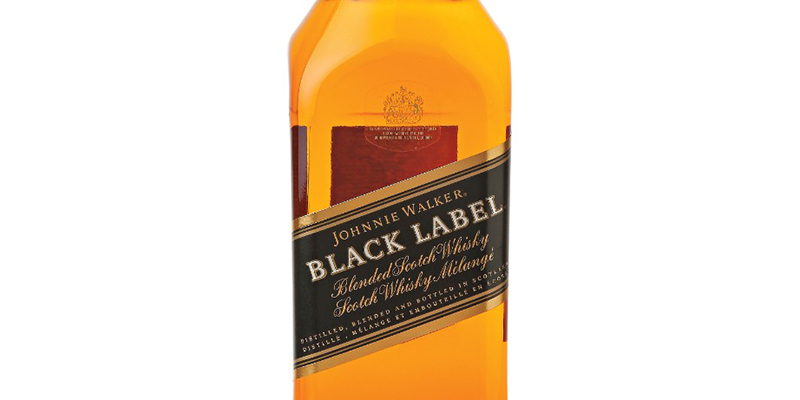Two surprises: Israel loves its Johnnie Walker, and—in a slightly unexpected turn of events—there’s actually a holy fight brewing over the kashrut, or religious “kosher” dietary guideline status, of its beloved Black Label. They’ve got two importers of the same stuff, but as of this week, only one’s certified as Kosher.
Israel gets its Johnnie Walker from either Israel Beer Breweries Ltd. Spirits (IBBLs) or a smaller outfit called Paneco. While grain-based whisky is ingredient-kosher (as long as it hasn’t been sherry cask-aged, e.g.), it still requires kosher certification to succeed as a product in Israel, where observant Jews tend to follow official guidelines. In order to receive Kosher certification—and find its place on restaurant and store shelves in the Holy Land—Johnnie Walker’s production practices have to be certified, in this case by a group called the Kosher Certification Organization (aka “OK”). The OK certifies, or doesn’t, and reports its findings to the Chief Rabbinate, which then grants or revokes kosher status. IBBLs is absolutely free to import Johnnie Walker Black Label. But as of this week, like that dude’s diplomatic immunity at the end of Lethal Weapon II, Paneco had its Johnny Walker Black Label Kosher status revoked.
Paneco is importing the exact same thing as the IBBLs—so why did this happen? Internet chatter has already spawned a few theories, even among non-Jewish, and/or godless, drinkers. On one hand, IBBLs paid to send OK officials to certify the kosher practices of Johnnie Walker production facilities in Scotland. Paneco, presumably, assumed that because their product is made by the same folks in the same way, their Johnnie Walker was just as certifiably Kosher. Minus the certification.
According to OK’s Rabbi Aharon Haskel, OK can only supervise—and therefore certify—particular batches of Johnny Walker in certain facilities (naturally, they’re not overseeing all whisky production practices. Given the incredibly complex world of whisky standards, only God himself could do that.) But as Paneco countered to Jewish World News, their Johnnie Walker is “the exact same product being marketed by a company in Israel which holds the kosher certification for the product,” referring to IBBLs. Paneco argues that if OK says IBBLs’s Johnnie Walker is…well, okay, than any whisky distributed by Johnnie Walker is…OK. Except, no.

The ramifications are pretty huge for Paneco, since the revocation has seen stores and restaurants that abide by the authority of the Chief Rabbinates removing all Paneco-imported Johnnie Walker from the shelves (per order from Rabbi Rafi Yochai, head of the Rabbinate’s Kashrut enforcement). (Where it’s going, we’d love to know.) Another conspiracy theory we paranoiacally generated might be that IBBLs wants to undercut its competitor, which sells Black Label at a slightly lower price point, by sending OK to Scotland, receiving Kosher certification, and shutting Paneco out based on a technicality. As one announcement put it, Paneco’s “documents were not in order,” making this seem more like a matter of paperwork than ancient religious dietary restrictions.
Clearly motivations seem a bit…blurry. Even local Israeli rabbis well-versed in the intricacies of kashrut are trying to navigate the controversy. One Kosher-certifying rabbi even allowed that “everyone was right” – the IBBLs because they paid for OK certification, the OK organization for refusing to let Paneco piggyback onto the certification they granted the IBBLs, and Paneco itself for rightly noting that, even without Kosher certification from OK, its whisky is theoretically kosher. Oh, and Religious Israelis who continue drinking Paneco’s imported Johnnie Walker Black Label are also right, because again, Paneco’s Whisky ingredients and factory equipment are all kosher. Which begs the question—what’s in a label?
The line between religious, political, and monetary motivation is difficult to draw here, especially when rabbis themselves seem caught up in the paperwork and/or spirit behind “Kosher” certification. Unfortunately for Paneco, anyway, Kosher certifying agencies in Israel and beyond have an extraordinary amount of sway in determining what observant Jews should eat and drink.
Side note: there’s a chance we’ll have more opportunity to explore the power of kosher certification, as Israel’s first small batch distillery, Milk & Honey, promises to release their first single malt by 2017. No plans yet as to its kosher status, as they’re likely too busy navigating the country’s many microclimates and the potentially finicky, potentially brilliant, ancient influence of the Dead Sea.

